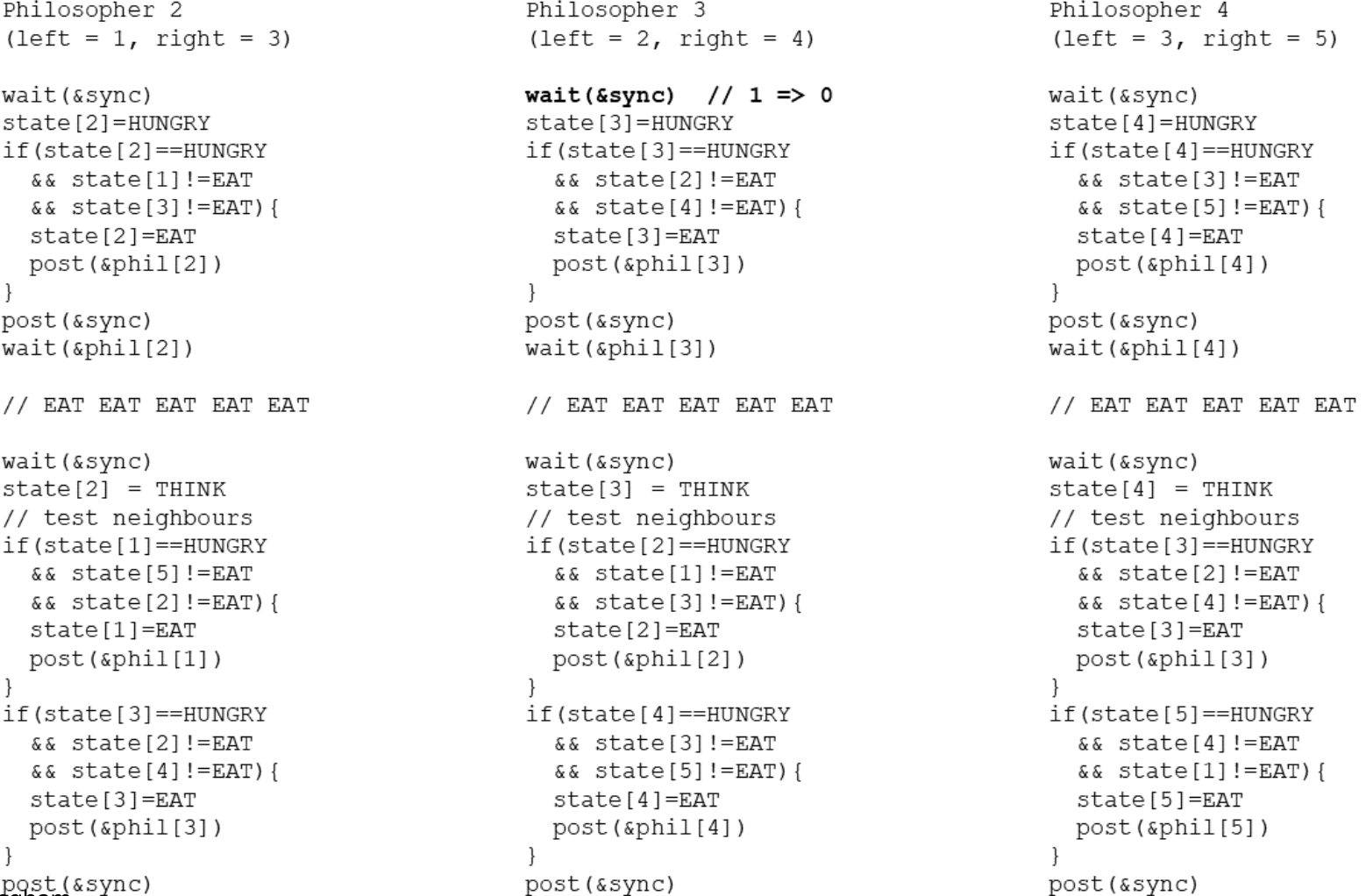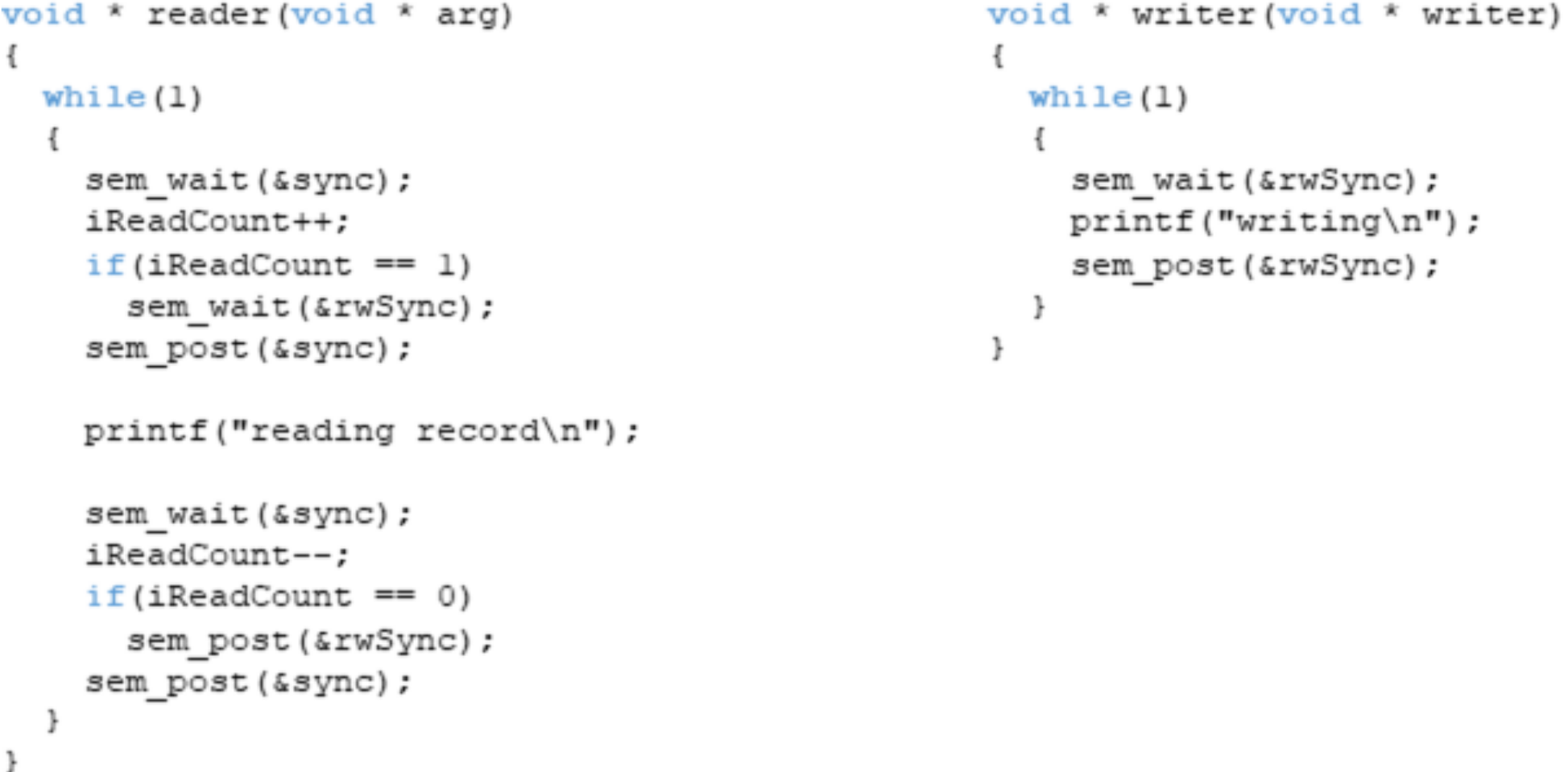10. Parallel dining philosophers & Readers/writers problem
28/10/22
The Dining Philosophers Problem - Continued
Solution 3 - Maximum Parallelism
- A more sophisticated solution is necessary to allow maximum parallelism.
- The solution uses:
state[N]: one state variable for every philosopherphil[N]: one semaphore per philosopher (not forks, initialised to 0)- Philosopher goes to sleep if neighbours are eating
- Neighbours wake up the philosopher if they finish eating
sync: one semaphore/mutex to enforce mutual exclusion of the critical section (while updating the states)
Needs to be done atomically all in one section
#define N 5
#define THINKING 1
#define HUNGRY 2
#define EATING 3
int state[N] = {THINKING, THINKING, THINKING, THINKING, THINKING};
sem_t phil[N]; // sends philosopher to sleep
sem_t sync;
void * philosopher(void * id) {
int i = *((int *) id);
while(1) {
printf("%d is thinking\n", i);
take_forks(i);
printf("%d is eating\n", i);
put_forks(i);
}
}
void take_forks(int i) {
sem_wait(&sync);
state[i] = HUNGRY;
test(i);
sem_post(&sync);
sem_wait(&phil[i]);
}
void test(int i) {
int left = (i + N - 1) % N;
int right = (i + 1) % N;
if(state[i] == HUNGRY && state[left] != EATING && state[right] != EATING) {
state[i] = EATING;
sem_post(&phil[i]);
}
}
void put_forks(int i) {
int left = (i + N - 1) % N;
int right = (i + 1) % N;
sem_wait(&sync);
state[i] = THINKING;
test(left);
test(right);
sem_post(&sync);
}

The Reads - Writers Problem
- Concurrent database processes are readers and/or writers, files, I/O devices etc
- Reading a record can happen in parallel without problems, writing needs synchronisation
- Different solutions:
- Naive implementation with limited parallelism
- Readers receive priority: no reader is kept waiting (unless a writer already has access, writers may starve)
- Writing is performed as soon as possibly (readers may starve)
Solution 1 - No Parallelism
void * reader(void * arg) {
while(1) {
pthread_mutex_lock(&sync);
printf("reading record\n");
pthread_mutex_unlock(&sync);
}
}
void * writer(void * writer) {
while(1) {
pthread_mutex_lock(&sync);
printf("writing\n");
pthread_mutex_unlock(&sync);
}
}
Solution 2 - Readers First
Allows parallel reading.
- Implementation requires:
iReadCount: integer tracking the number of readers- if
iReadCount > 0writers are blocked (sem_wait(rSync)) - if
iReadCount ==>== 0writers are released (sem_post(rwSync))
